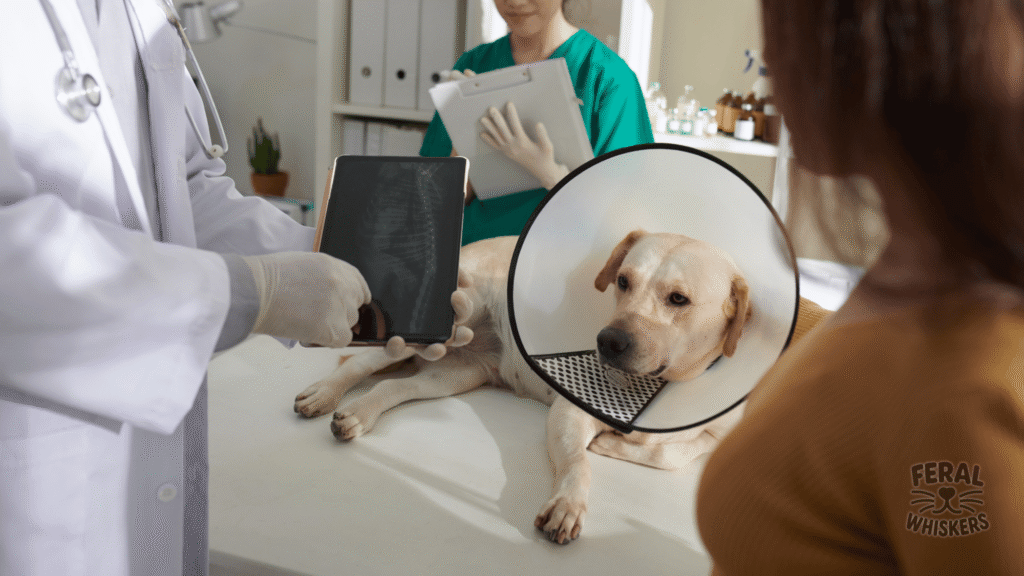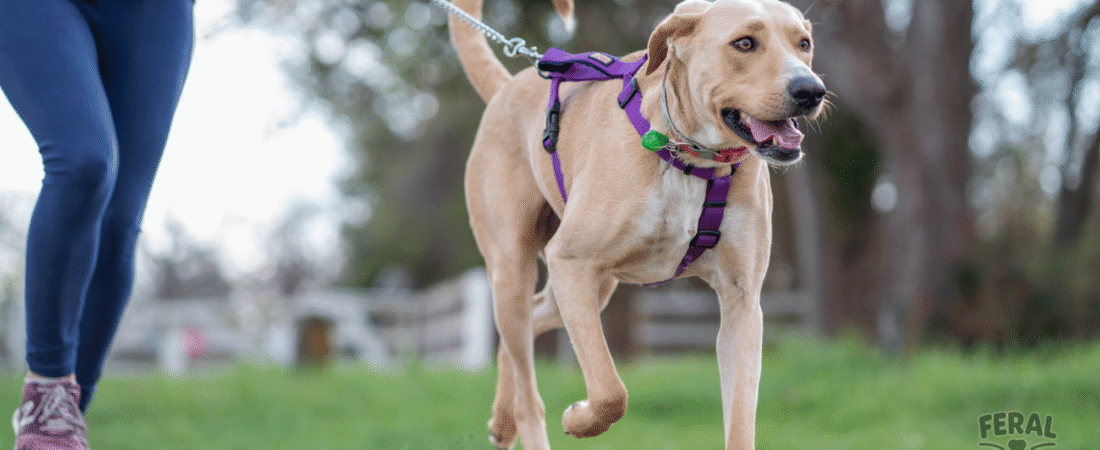📌 Why Arthritis is One of the Most Common Canine Health Problems

Arthritis — often called degenerative joint disease (DJD) or osteoarthritis — affects up to 1 in 5 adult dogs, and over 80% of seniors. This painful condition occurs when the cushioning cartilage inside joints breaks down, causing inflammation, stiffness, and reduced mobility.
But here’s the challenge: arthritis is progressive — it won’t disappear. The goal is to slow progression, reduce pain, and keep your dog moving happily. Too often, conventional medications (like NSAIDs) come with side effects (GI upset, kidney stress).
👉 That’s where holistic and natural care shines — offering pain relief, inflammation control, and joint support while improving your dog’s overall vitality.
🦠 Signs Your Dog May Have Arthritis
- Difficulty rising, stiffness after rest
- Limping or favoring one leg
- Reluctance to jump, run, or climb stairs
- Spending more time lying down
- Irritability when touched near joints
- Muscle wasting (from inactivity)
- “Slowing down” mistaken for normal aging
💡 Many owners think their dog is “just getting old,” when in reality, arthritis is the culprit — and pain management can restore their spark.
🌿 Holistic Care Approach for Arthritis
1. Anti-Inflammatory Diet: Healing from the Bowl 🍲
Inflammation fuels arthritis pain. Adjusting diet is one of the most powerful holistic steps.
Foods That Help:
- Omega-3s (EPA & DHA): Found in salmon, sardines, anchovies, krill. Reduce inflammation, lubricate joints.
- Lean proteins: Chicken, turkey, rabbit support muscle mass without excess weight.
- Antioxidants: Blueberries, spinach, pumpkin neutralize free radicals that worsen joint damage.
- Bone broth: Packed with glucosamine, collagen, amino acids to nourish cartilage.
- Golden Paste: Turmeric + black pepper + oil = natural anti-inflammatory.
Foods to Avoid (in arthritis prone dogs):
- Excess starch / refined carbs (potatoes, corn, wheat).
- Processed kibble with fillers or artificial additives.
- Excess weight‑promoting treats (biscuits, sugary chews).
👉 Practical Meal Add‑In: Add 1–2 tsp of sardine or salmon oil daily to meals for anti-inflammatory support.
2. Supplements With Strong Research 💊
Holistic supplements can slow joint degeneration and improve movement.
- Glucosamine & Chondroitin: Key cartilage repair nutrients.
- MSM (Methylsulfonylmethane): Reduces joint inflammation and pain.
- Hyaluronic Acid: Lubricates joints and improves shock absorption.
- Green-Lipped Mussel: Natural source of omega-3s, chondroitin, and rare anti-inflammatories.
- Collagen Peptides: Support cartilage repair and skin elasticity.
- CBD oil (vet-approved): Can reduce pain perception and inflammation.
💡 Many holistic vets recommend a joint support “stack” (glucosamine + green-lipped mussel + omega-3s) for maximum benefit.
3. Weight Management: The #1 Arthritis Therapy ⚖️
Every extra pound of body weight adds up to 4 pounds of force on a dog’s joints. Keeping your dog lean is the most effective way to reduce arthritic pain.
Tips:
- Feed portion-controlled meals; avoid free feeding.
- Use veggies (green beans, carrots, zucchini) as low-calorie treats.
- Regular weigh-ins. Aim for ribs you can feel (but not see sharply).
4. Exercise = Medicine (But Balanced) 🐕🦺
Dogs with arthritis need movement to maintain muscle mass and lubrication of joints — but over-exercising worsens pain.
✅ Best Exercises:
- Short, frequent walks (gentle pace).
- Swimming or canine hydrotherapy: Zero weight-bearing, builds muscle, improves flexibility.
- Gentle fetch indoors or tug of war without jerky movements.
🚫 Exercise to Avoid:
- Long-distance runs.
- Jumping in/out of vehicles.
- Rough play on hard surfaces.
Tip: Invest in ramps, stairs, and non-slip rugs at home to make mobility easier.
5. Alternative Therapies (Proven Holistic Pain Relief) 🌸
- Acupuncture: Studies show increased mobility, endorphin release, lowered inflammation.
- Massage therapy: Improves circulation, flexibility, eases stiffness.
- Chiropractic adjustments: Can realign joints and reduce compensatory pain.
- Laser therapy: Stimulates healing, reduces inflammation.
- Thermotherapy: Warm compresses soothe stiff joints; cold packs help with acute swelling.
💡 Dogs often respond best to a mix of modalities (e.g., acupuncture + supplements + exercise).
6. Home Environment Adaptations 🏡
- Orthopedic dog bed: Memory foam supports joints and relieves pressure points.
- Keep warm in winter: Arthritis pain worsens in cold, damp environments.
- Non-slip flooring: Rugs or yoga mats prevent slipping on tile/wood floors.
- Elevated feeders: Reduce strain on neck and shoulders.
- Car ramps: Save stress on hips and spine.
🚨 When to Use Conventional Medications
Holistic care is powerful, but in severe arthritis, conventional drugs (NSAIDs, gabapentin, Adequan injections) may still be needed — ideally in combination with natural measures to reduce dosage and side effects.
Always consult a vet before starting supplements if your dog is already on prescribed meds.
❓ FAQs
Q1: Can arthritis be cured naturally?
No, arthritis can’t be “cured,” but holistic care can dramatically slow progression and reduce pain.
Q2: What’s the best natural supplement for arthritis?
Green-lipped mussel and omega-3s are top tier for natural anti-inflammatory benefits.
Q3: Should I limit my dog’s activity?
Not completely — controlled, gentle exercise strengthens joints. Total rest worsens stiffness.
Q4: How do I know if my dog’s pain is severe?
Watch for refusal to walk, crying when rising, or complete immobility — these need urgent veterinary help.
💡 Final Thoughts
Arthritis doesn’t have to steal your dog’s joy. By blending holistic care — diet, supplements, alternative therapies — with smart home adaptations and (when needed) conventional medicine, you can give your dog comfort and mobility at every stage of life.
✅ Key Takeaway: The sooner you address arthritis holistically, the longer and happier your pup’s active years will be.

